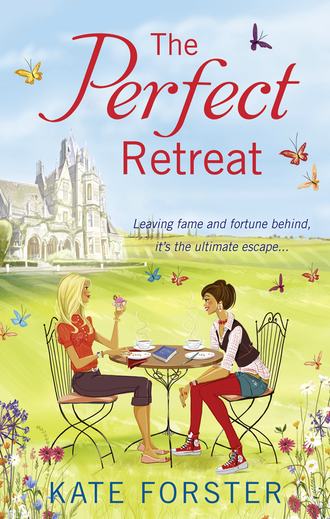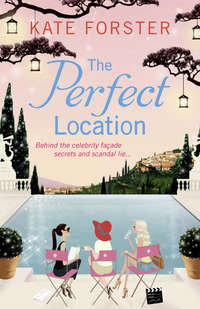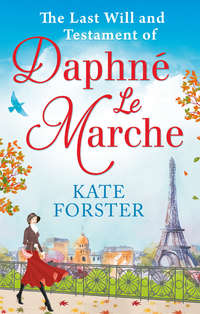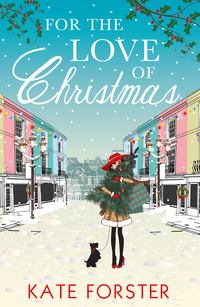
Полная версия
The Perfect Retreat
Eliza was horrible, she thought: so instantly see-through and a definite social climber. Willow shuddered. She would never associate with someone like Eliza; why on earth had Simon recommended her? Lucy, on the other hand … Well, she had definitely underestimated the girl, who reminded her of Mrs Tiggy-Winkle from the story that Poppy liked so much. Round, comforting, sensible. That’s what I need more of in my life: sense. And dollars, she thought as she pulled out her phone.
After Willow left EWJ, Eliza screamed at Lucy for ten minutes, demanding she tell her what she had said when she left the room, but Lucy played dumb. The truth was she had found out about Willow and Kerr’s finances from her friend who worked in PR at Kerr’s record label. As soon as Lucy overheard Eliza taking the call about Willow, she had rung around her mates in PR to get the lowdown.
Eliza’s tirade only stopped when the phone rang and she stomped off to her office, slamming the door. Lucy picked up the phone. ‘EWJ Agency, Lucy speaking,’ she said efficiently, although she felt like crying after Eliza’s onslaught.
‘Hi Lucy, it’s Willow again.’
‘Hello,’ said Lucy, surprised.
‘I just wanted to thank you for your honesty and advice. Suffice it to say there are a few things happening in my world at the moment which are less than appealing,’ said Willow wryly.
‘I figured,’ said Lucy.
‘Listen, this may seem odd, but is there any chance you would consider working for me as my private PR person? I don’t have any money yet but I think I can get back in front, and I really need people I can trust at the moment,’ said Willow down the phone.
Lucy was silent, thinking.
Willow continued, ‘I know it’s a big risk for you but you were amazing in that room, and I honestly think you could help me. And I could help you, I hope.’
‘I would need to think about it,’ she said quietly, looking down at her desk.
‘No private calls!’ hissed Eliza and Lucy looked up to see Eliza’s reptilian face peering at her.
At that moment Lucy realised she had had enough of Eliza and her bullshit and she smiled down the phone. ‘Actually that sounds lovely. I’ll text you from my mobile and we can meet in a minute,’ she said.
Eliza looked at her as she hung up the phone. ‘You’ve had lunch; you don’t get time off to meet people. I need you here,’ she barked.
‘Actually Eliza, I’m leaving.’
Lucy stood up and took her handbag from the filing cabinet.
‘When will you be back?’ asked Eliza, unnerved by Lucy’s calmness.
‘On the first of never, Eliza. I can’t work for you any longer and I was too well raised to tell you what I think of you, so please consider my notice immediate and final,’ she said, and with that she walked out of the door.
Eliza started to follow her down the stairs, screaming her name. ‘Lucy, Lucy! Come back here!’ she called, and then the phone rang and Eliza turned on the stairs to go and answer it and lost her balance and reached out to grab something. The only thing her desperate arms could find was one of the hanging fried eggs. She yanked it and fell down the stairs to land on her bony bottom, a giant latex egg on top of her.
And that was Lucy’s last vision of her ex-boss: at the bottom on her bottom with egg on her face. Perhaps karma did exist after all, she thought.
CHAPTER SEVEN
Merritt was back from his tour of the grounds with Lucian and Poppy. Kitty watched them as they rounded the side of the house and thought for a moment what a shame it was he’d never had any children, but she pushed the thought from her mind. That would mean Eliza would be their mother, and that was a fate she would not wish on anyone.
‘We’re back!’ called Merritt from the foyer, and Poppy echoed him. ‘We’re back!’ her little voice rang out.
‘How was that?’ asked Kitty as she took their muddy boots off.
‘Awesome,’ said Poppy, using her favourite word of the week.
‘Depressing,’ mumbled Merritt. He followed the little party into the kitchen where Kitty had set up a morning tea of pikelets and milk and a pot of strong tea for Merritt.
‘Really?’ asked Kitty as she sorted out the children.
‘Oh Kits. It’s in such bad shape. I don’t even know if it’s worth saving. Perhaps we should just let the National Trust have it,’ he said, slumping in his chair.
Kitty sat opposite him not knowing what to say.
‘The gardens are overgrown – hideously overgrown in fact. The fences are falling down, some of the trees are in bad shape, will need to be looked at as soon as possible. And that’s just outside,’ he said sadly.
Kitty frowned. This was not her area of expertise. In fact, she thought, she didn’t even have an area of expertise.
‘I am going to write a big list this week of everything, inside and out. I could use a hand when you have a moment,’ he said.
Kitty thought about the children and all she had to do for them and was about to speak up when she saw Merritt’s forlorn face and decided against it. ‘Of course,’ she said, although she wondered what help she could be.
‘We have the money Dad left us but that’s about it,’ he said, thinking aloud.
‘We could turn it into a hotel?’ suggested Kitty, having seen it done on TV before.
‘What the hell do we know about that, Kit? It would be worse than Fawlty Towers I think,’ he said.
Kitty laughed. ‘Yes well, I suppose you’re right.’
‘I wish there was buried treasure somewhere. Dad always said that his great-great-great-grandmother had said there was something of worth in the house, but I have no idea what he meant. He spent his life searching for it, but who knows what she was talking about?’ he said.
Poppy looked at Merritt, her eyes wide. ‘Treasure? I’ll find it!’ she said.
Kitty smiled at her indulgently. ‘Well if you do then you can have some of it,’ she said to the small girl, whose cheeks were flushed from the country air.
Merritt stuffed two pikelets into his mouth at once. ‘I wonder what the hell she meant,’ he pondered.
‘I have no idea. There aren’t even any paintings left of George’s,’ said Kitty as she refilled her chipped mug, referring to their ancestor who had built the house. His paintings, once worthless, were now well regarded by the art community. Their father had watched with painful fascination every time a new painting went up for sale at one of the major auction houses.
‘Should be our money,’ he used to say to the children when he saw the rising prices of George Middlemist’s works in the marketplace.
Family legend was that once George and his wife Clementina had separated, she sold all his works to keep herself and her children in the lifestyle they were accustomed to. Divorce was not an option in Victorian England, Edward’s father had told Merritt and Kitty, and once George had had the affair with his life model Clementina threw him out of Middlemist, where she stayed until she died of old age.
Clementina had been an artist too, but not of the same calibre as George, and the only paintings left in the house were hers. They weren’t likely to get the same price as George’s art and so the family had them stacked away in the eaves, in what was once George’s studio.
Merritt stood up and bowed to Kitty and Lucian. ‘Well, Lady Poppy and Lord Lucian, it was my pleasure to escort you today. Please feel free to see me at any time and let me know if I can be of assistance. No matter is too small or too big; I am at your service.’
Poppy giggled and Lucian looked straight ahead. Merritt walked over to the phone on the bench and took the pen and pad that lay next to it.
‘I’m off to see what work lies ahead of me,’ he said, and he walked out the door. Lucian got out of his seat and watched as Merritt walked away.
‘He’ll come back,’ said Kitty to Lucian, who was peering through the dirty glass. He turned to Kitty and then looked back out of the window again. That’s odd, she thought, he never notices anyone.
Kitty forgot about Lucian quickly as Jinty’s wails came crackling through the kitchen on the baby monitor. ‘Your sister’s awake. How about I get her up and we see what she’s up to?’ said Kitty cheerfully, and she took the two other children upstairs to see their sister.
Merritt walked around the Lady’s Garden, as it was known, taking notes and thinking about Willow’s children. He hadn’t spent much time with children at all, but Lucian reminded him of a client’s child he had seen in Florida. He was the eight-year-old son of a wealthy polo player from South America. They were a lovely family, he remembered, enthusiastic about Merritt’s ideas, and they included their child in everything. Merritt had stayed nearby the house for six weeks to ensure the proper placement of their large collection of rare trees, and he had spoken at length with the wife about her son. He tried to remember what she had said her child’s condition was. She had asked Merritt to design a sensory garden for him and he had had much delight in working with the boy, getting him to choose plants and flowers that would stimulate him.
A few times a week a special teacher would come and work with him and mostly they worked outside on the green lawn, playing games and rolling on sports equipment, even crawling together. Merritt had watched with interest and he even saw small improvements by the time he left. Merritt reminded himself to email the woman to ask for more information so he could give it to Kitty for Willow.
Inside the house Kitty was fighting with Poppy, who was insisting on using her crayons on the wooden oak panels in the hallway. ‘No,’ said Kitty. ‘These are not for drawing on.’
‘Well I want to draw. I want my art things and you didn’t bring them,’ moaned Poppy accusingly.
‘Well I’m sure we have some paper somewhere,’ said Kitty, licking her thumb and trying to get the green crayon off the wall.
‘I want real art things,’ said Poppy, making a face that Kitty knew from experience would turn into a giant wail.
Kitty thought of the eaves, where all of Clementina’s paintings were housed. Perhaps there were things up there. She remembered her mother and her father had dabbled in art, and they had also encouraged Merritt and Kitty to paint, hoping that their ancestor’s genes would come through – but to no avail. Eventually it had all been packed away. Kitty wondered if it was all still stored up there in the eaves.
‘Alright, come on then,’ she said impatiently, and picking up Jinty and gently pushing Lucian ahead of her she led the way for Poppy to follow her up to the eaves. The stairs got smaller as they climbed and it became darker, the air mustier. Jinty started to cry and squirm in Kitty’s arms. ‘Hang on, nearly there,’ she said, and they came to a small wooden door. Kitty hadn’t been up here in years, and she pushed open the door wondering what she would find.
The room was dank and smelt of stale air and oil paints. Kitty held Jinty as she drew back one of the blinds and sunlight flooded the room. All of Clementina’s paintings leant against the far wall and there were many easels and canvases with half-finished paintings. A red chaise longue in tattered velvet was the only piece of real furniture in the room apart from a small table with a tarnished bowl sitting on top of it. There were shelves of books and art supplies and a small sink in the corner of the room.
There were trunks stacked on top of each other and a few boxes marked ‘Iris’. No doubt her mother’s things that her father had hidden away after her death, thought Kitty sadly. She remembered how desolate her father had been. That’s when he forgot me, she thought, trying to hold back the tears that pricked her eyes.
Kitty’s father had been so enveloped in his own grief that he’d let Kitty do as she pleased. He had ignored her failing at school, her lack of confidence and her sadness. She had lost her mother, but that was not enough to pierce his veil of desolation, and so they had lived in the same house, sometimes not speaking for days. She felt like her mother had abandoned her first by dying, then Merritt had abandoned her when he and Eliza split up, and then her own father had abandoned her in her own house.
Kitty sat on the sagging chaise longue. The emotion threatened to overwhelm her and she wondered at the strange turn of events that had brought her here, back at Middlemist with Willow’s children and Merritt, sitting in the eaves.
Poppy danced around the room. ‘Look at all the things! Can I have them?’ she asked, expecting the answer to be yes, as it usually was. ‘No, but you may borrow them,’ said Kitty firmly.
‘OK,’ said Poppy, turning up her little nose. ‘This will be my playhouse,’ she said decidedly, ‘and you two cannot come in unless you ask,’ she said to Jinty and Lucian. Lucian was standing by the window staring ahead over the grounds, watching Merritt in the garden. Jinty was sitting on Kitty’s lap, playing with a long strand of torn velvet.
‘Can I come up here whenever I want?’ asked Poppy.
‘You must ask me first, and I will have to do a scout around to see you can’t get hurt on anything.’
‘OK,’ said Poppy happily.
Kitty placed Jinty on the floor and she promptly pulled herself up to a standing position to continue playing with the velvet strand. Kitty looked around; there was nothing major Poppy could hurt herself with. The windows were too large to lift, so she couldn’t fall out the window. She pushed the easels against the walls so they wouldn’t topple over and lifted one of the trunks down onto the floor to ensure that it too would not fall on Poppy. Looking through the shelves of art supplies, she found some watercolours and paper. She took out a brush and filled up a glass jar with water. ‘Here you go,’ she said to Poppy. She placed the paper on the table and put the bowl next to it. ‘You use them like this,’ and she painted a few strokes for Poppy to see what she was doing.
Poppy snatched the brush out of Kitty’s hand. ‘I’ll do it,’ she said, and Kitty looked at her. ‘Don’t snatch, Poppy. And say thank you.’
Poppy turned her head towards Lucian. ‘Lucian needs to go to the toilet,’ she said, and Kitty jumped up. ‘You need to do a wee, Lucian?’ she asked. She took him by the hand, lifted Jinty expertly with one arm, and started down the stairs. ‘Stay there. Don’t paint on anything but the paper and don’t hurt yourself. I’ll be back in a minute,’ she called up.
Poppy smiled as they left. She had no idea if Lucian wanted to go to the toilet, but she always found this the best way to get rid of Kitty or her mother. Poppy looked around the room and sighed with delight. Although she didn’t know the word for it, it felt good to be alone. To have a place where Jinty and Lucian couldn’t come.
She walked over to the trunk that Kitty had moved and examined the strap that was holding it together. It was worn leather, fraying in parts. Poppy wasn’t strong enough to pull it open, so she picked at the leather until it fell apart. Straining at the large lid, she struggled till it fell backwards with a thud. She waited for Kitty to yell out to her, but heard nothing from downstairs.
Peering into the trunk, she saw layers of yellow paper with fabric underneath. Pulling off the paper, Poppy lifted up a hat covered in roses, faded but still pretty. Poppy put it on her head. Digging deeper into the trunk, she found old fans, some broken but some still in good condition. Small shoes and coats. A large petticoat and huge cream dress with lots and lots of buttons and lace.
Poppy pulled everything out of the trunk into the middle of the floor and climbed into the empty space, wearing a pair of the tiny shoes. I could lie down in here, she thought, and she jumped on the box’s floor until she heard a crack. Looking down she saw her foot had gone through the bottom of the trunk, but when she lifted her leg out carefully she couldn’t see the floor below it. She squatted to the side of the hole and picked at the old, splintering wood, lifting up small pieces. Worried about a splinter, which she had had once before, she pulled on one of the kid gloves lying in the heap on the floor and noticed her hand nearly fitted it perfectly.
Once she had both gloves on, Poppy worked furiously until she had made a large hole in the base of the trunk. She slipped her hand in to see if there were any other items underneath. Maybe this is the treasure that Merritt and Kitty talked about, she thought excitedly.
Her gloved hand brushed against something and she gasped as she pulled it out. It was a bundle of letters bound by a pale blue ribbon. Poppy was disappointed; she couldn’t even read yet. She threw them on the floor and continued searching the cavity in the trunk. Next she pulled out a few small leather-bound books. She threw them over with the letters – they were no good either. She put her arm back into the trunk’s false base one last time and stretched her hand as far into the corner as she could. She drew out a small box. Opening it, she found a beautiful ring. It was a large square-cut emerald with small diamonds around it set in silver on a gold band. Next to it lay a gold wedding ring.
Poppy knew she had found the treasure. Not waiting a minute longer, she stood in the doorway and screamed for Kitty in her loudest, most piercing voice.
Kitty, who was still in the bathroom with Jinty and Lucian, heard the cry and panicked. Merritt, who heard from the garden, ran inside in alarm. He and Kitty met on the stairs. ‘Where is she?’ he cried.
‘In the eaves,’ she said breathlessly, trying to run up the stairs with Jinty on her hip and dragging Lucian along behind.
‘The eaves? For fuck’s sake Kitty, that’s not safe!’
‘I thought it was,’ said Kitty crossly as she mounted the top step, and together they reached the door. Poppy greeted them in a Victorian bonnet, kid gloves and beaded dancing shoes.
‘I’ve found the treasure,’ she said proudly, and held out the box to Merritt and Kitty.
Merritt took the box and opened it. ‘Fuck a duck, Kit. She’s found Clementina’s engagement ring.’
CHAPTER EIGHT
Willow was nervous. It had been too long since she had spoken to anyone about a film role, and now she had to meet with the director and have a ‘chat’. After her Oscar she could have chosen anyone she wanted to work with, but that didn’t last. Nothing lasts, she thought, thinking of Kerr.
Sitting in her suite at the Dorchester, she decided that if she landed this part then today would be a good day. She had bought clothes specially for the meeting, with Lucy’s approval. Funny how such a dowdy girl could have such good ideas about fashion, she had thought as Lucy had assessed the choices laid out on the bed.
‘Yes to the Yves Saint Laurent. No to the jeans and Chloé top,’ said Lucy knowingly.
‘But the top is so pretty,’ said Willow, touching the delicate lace.
‘I don’t think Harold Gaumont has ever worn jeans in his life, nor have I ever seen any of his actors wear jeans in his films,’ said Lucy, raising her eyebrows at Willow. ‘The dress is perfect,’ she said, holding up a finely pleated silk chiffon number with a print of autumnal flowers on it. ‘Wear it with those shoes you have on now,’ she said, pointing to her soft suede brown kitten heels, ‘and pull your hair up in a messy bun.’
‘Well, it would help if I knew what the film was about. Simon had no idea. He’s very mysterious, this Harold,’ said Willow.
‘You have to assume that with Kate Winslet being cast before it will be a period piece of some sort. I can’t see her in jeans,’ laughed Lucy.
After meeting with that awful Eliza woman, the best thing Willow could have done was to ring back and convince Lucy to leave to work solely for her. They had spent the afternoon drinking tea in Willow’s suite and exchanging stories.
Willow had admitted to Lucy that she was indeed broke and would need to get to work as soon as possible. Lucy hadn’t been surprised; she knew so many of her clients’ secrets that they filled her dreams at night.
‘So you have no money, only assets?’ Lucy had asked.
‘Do shoes count as assets?’ asked Willow, almost seriously.
Lucy’s laugh had given Willow her answer. ‘Don’t worry too much. As long as you have a roof over your head you’ll be OK. I’ll have you earning in no time.’
‘Jesus, you sound like a pimp.’
Taking the Yves Saint Laurent dress from Lucy, Willow’s mind turned to the terrible story she had just been telling her about Eliza. It was meant to be funny but had ended up making Lucy sad she had put up with her for as long as she did. ‘How did you stand working for her for so long?’ Willow had asked.
‘I didn’t really have a choice. I have a flat with a mortgage and there isn’t a lot of work out there for people in my industry. The first thing companies do is slash marketing and PR budgets when times are hard.’
Willow felt the weight of Lucy’s mortgage as if it were her own. ‘Well, you better get me to work soon so I can help you pay for your flat,’ she had said, half joking, half seriously.
‘Oh don’t worry, I will. I already have many, many ideas – but first we need to get you ready for your audition.’
‘Oh it’s not an audition, it’s a “chat”,’ laughed Willow.
‘It’s an audition,’ said Lucy firmly.
Lucy was astute, but she deliberately underplayed herself; it made the clients feel better about themselves, she thought. She took an academic approach to her work: learn, offer advice when asked, and dress to underwhelm. That way when brilliance came out of her mouth, people would always be surprised. The biggest perk of being dowdy was that people told you their secrets more readily when faced with lace-up shoes rather than stilettos.
‘Now I’ll head off home and get started on your re-entry into the world of bullshit. You ring me straight after, OK?’ Lucy had said, as she gathered up her plain black bag and coat.
Willow laughed. There was something about Lucy that was so practical and sensible; she reminded her of someone. She thought about it. Yes – she reminded her of Kitty, only smarter. What was it about the two English girls that made them so likeable? Although Willow had been in England for years, she had yet to make close girlfriends with anyone. Most women were either jealous or in awe of Willow, and her homeschooling experience hadn’t helped her socially. She didn’t know how to make friends, but she decided as she gossiped with Lucy and talked about everything from fashion to interior design that this felt good. Sometimes she and Kitty talked, but Kitty seemed afraid of her and they didn’t have anything in common besides the children.
Lucy was not as she seemed, Willow had learned. She knew everything about fashion, parties, and people, and how the machinations of reputation worked, yet she refused to be a personal part of it. ‘I know my side of the room,’ she had said to Willow. ‘Besides, as my uncle used to say, you should never shit where you eat.’
Willow had laughed and laughed. ‘Good point.’
‘Right, now I know a bit about this director. He’s a bit mad,’ said Lucy.
‘I had heard that. In what way, do you think?’ asked Willow.
‘Well, he’s a visionary. Only makes a film every few years, when the creative urge strikes him. Always epic and huge. Total creative control freak,’ Lucy had said.
‘I must admit I’ve only seen one of his works; the one about the geisha. It looked amazing,’ said Willow, remembering the lush art direction but not much about the story.
‘Yes, I saw that too. No idea what the hell was going on, but I loved the costumes,’ Lucy had agreed.
And now Willow sat waiting for the legendary director to come to her suite for their ‘chat’.
She had offered to meet him but he was averse to the public in general, Simon had told her. Instead he was driven from place to place in a black Bentley with darkened windows. Reclusive, brilliant and married four times without any children, he was a fascinating and influential director whom the critics adored and the general public treated as an artist.







